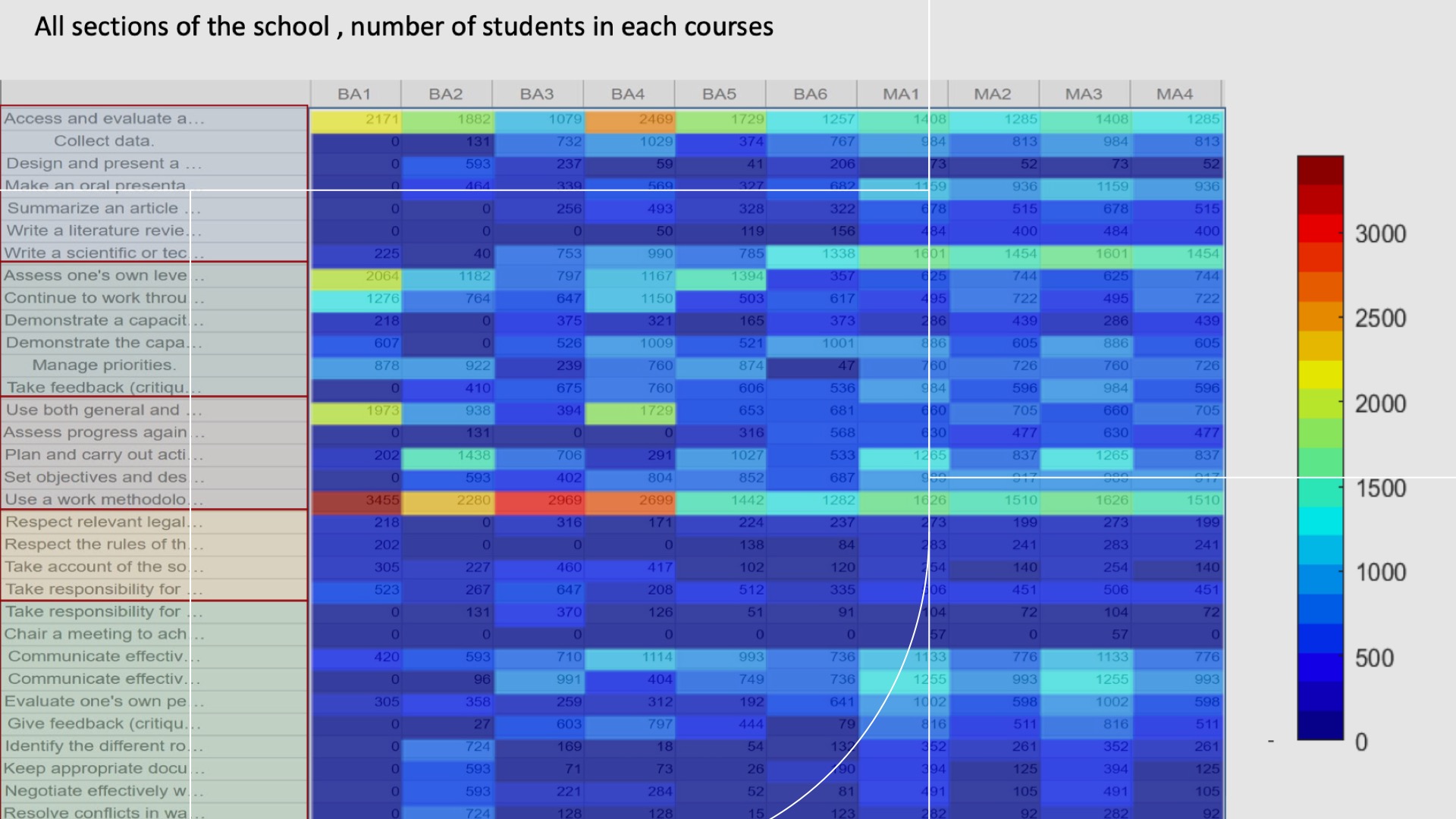Professional (transversal) skills are career competences that are not specific to a particular job, task, discipline or are of knowledge. They are skills that can be used in variety of work settings, and as such are necessary for engineering graduates’ successful transition into future jobs.
Engineers and architects often need to deal with great social, technical and environmental complexities, and the demand for having broadly educated holistic engineers will only continue to grow in the future. Being able to manage and lead diverse teams, understand complex, interdisciplinary systems and solve open-ended problems across and beyond different subjects is expected from the next generation of graduates.
There are several projects under this initiative, joint in the attempt to examine how well professional, transversal and interdisciplinary skills are integrated into the curriculum at EPFL. The work done under the umbrella of examining professional skills integration is done through studying curricular material, collecting students’ and coaches’ opinions through surveys and interviews, analysing interdisciplinary MAKE projects, and mapping examples of good practices across the institution.
Mapping Transversal Skills
An initiative to map, examine and track teaching and learning of transversal skills at EPFL was developed as a result of a collaboration between the LEARN team, the Teaching Support Service (CAPE) and the Discovery Learning Program (DLP). Under this initiative we have so far looked at:
- Mapping transversal skills presented in the course documents (fiches de cours) across all sections
- Presenting examples of good practice in using different teaching methods in integrating transversal skills
- Examining the coverage of transversal skills in master courses
- Mapping transversal skills offered by units that are not covered through the regular curriculum
Two reports are available, one on curricular material and one on extra-curricular content. The first was presented on SEFI 2020 and is available at infoscience, and the second was developed as an internal document. In addition, several videos of teachers providing examples of their practice in teaching transversal skills were compiled. These are available here.
MAKE Research
This study looks into the effects of interdisciplinary MAKE projects on students’ motivation, learning strategies and project-management skills, with the aim of evaluating the impact of this initiative and providing useful feedback. The aim of the study is to evaluate the efficacy and quality of project-based learning experiences at the MAKE program at EPFL, with the aim of supporting further development of a more holistic curricula that would better support student engagement and learning (not only in terms of disciplinary learning but also transversal competencies).
As a result of this study, feedback and results would be provided to the teacher(s) and managing staff at the end of the experience. Results of this study are presented at SEFI 2021, and documented in a conference paper available below.
Evaluation of MA Programs
An evaluation of 5 MA programs has been done by CAPE and data were collaboratively analysed with LEARN, mainly to assess the strengths and weaknesses of Master courses given at EPFL. Based on quantitative and qualitative input, the evaluation indicates that students at the MA level receive a strong theoretical knowledge, while on the more practical level, students seem to expect more of transversal skills, such as management skills, IT tools and understanding ethical, legal and environmental impacts within engineering. The study has been presented at SEFI 2021, and the paper is available at infoscience (link below).
